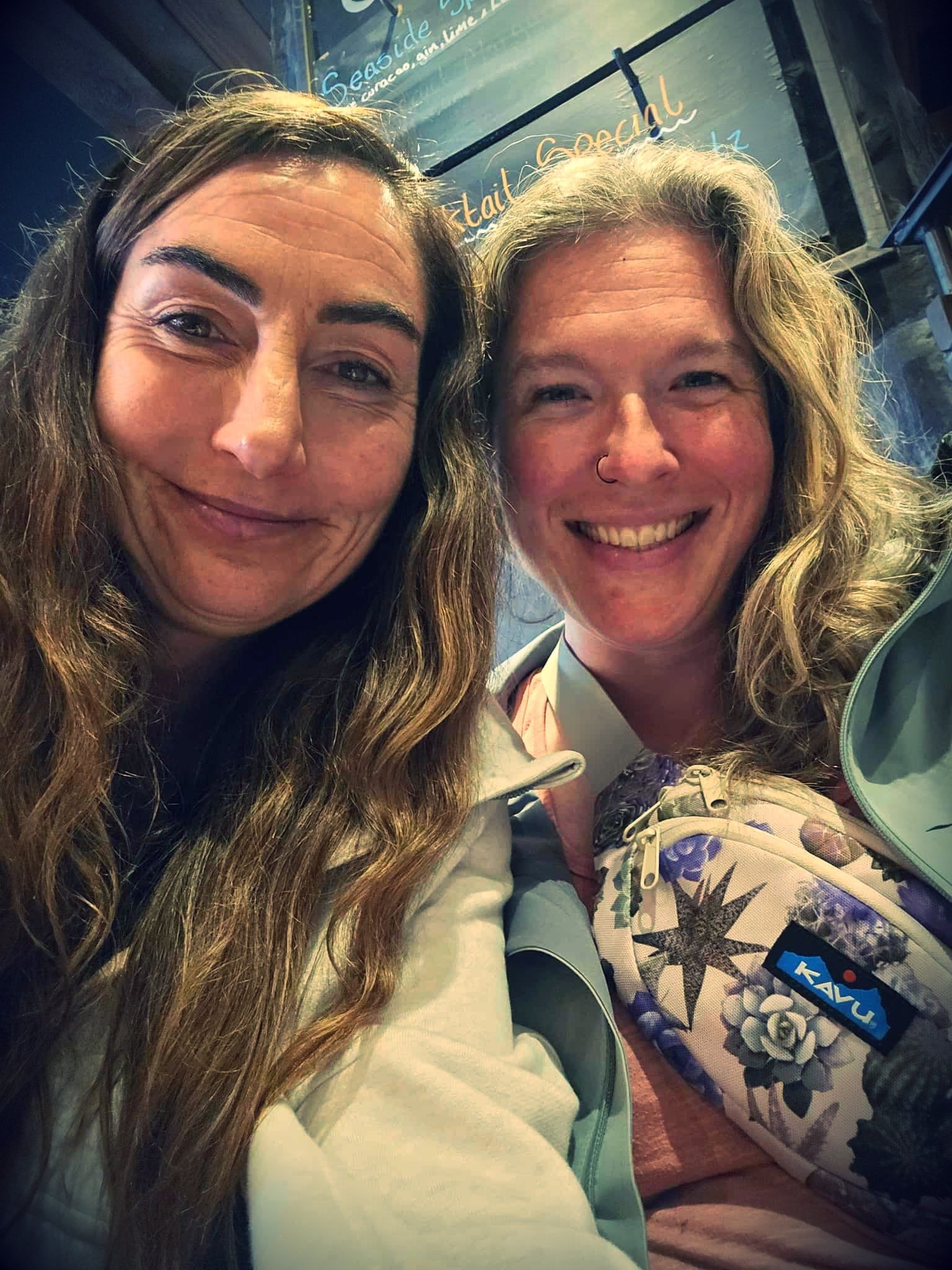
Our mission is to educate you, the listener, and increase awareness about food addiction as a recognized disorder. Here we discuss all things recovery, exploring the many pathways people take towards abstinence in order to achieve a health forward lifestyle.
Latest Episodes
Molly and Clarissa reflect on the words that shaped their past year and the intentions guiding them forward, then dive into a nuanced clinical discussion on “volume addiction.” They explore when overeating after removing ultra-processed foods may be binge eating disorder, when it isn’t, and why nervous system safety, embodiment, and compassion matter more than rigid labels in long-term recovery.
Paige and Jamie from Real Food Recovery join us for a deeply human conversation about what it really takes to build sustainable recovery from ultra-processed food addiction. We explore their four core recovery branches, the role of nervous system regulation, spirituality beyond religion, and why recovery isn’t about perfection—it’s about adaptability, compassion, and support when life destabilizes.
Jamie shares her experience of leaving an abusive relationship while protecting her recovery, opening an honest discussion about harm reduction, abstinence debates, ego traps like “I’ll start Monday,” and how shame keeps people stuck. This episode is validating, grounding, and empowering—reminding us that recovery isn’t about controlling food, but about building a life that feels safe enough to stay in.
In this deeply validating conversation, Clarissa and Molly are joined by renowned trauma and addiction therapist Jan Winhall, creator of the Felt Sense Polyvagal Model (FSPM). Jan reframes addiction—especially bingeing, purging, and compulsive eating—not as pathology or failure, but as the body’s intelligent attempt to regulate overwhelming nervous-system states. Drawing on decades of feminist, somatic, and polyvagal work, this episode offers a compassionate roadmap for understanding trauma, shame, neurodivergence, and recovery through the wisdom of the body.
In this episode of the Food Junkies Podcast, Clarissa and Molly sit down with psychologist Dr. Carrie Wilkens to explore what truly helps people change without shame, fear, or power struggles. Carrie shares insights from decades of work in addiction, eating disorders, trauma, and family systems—inviting us to rethink concepts like denial, relapse, codependency, and even the disease model itself. Together, they discuss how curiosity, values, and self-compassion can transform recovery and reshape how families and communities support the people they love.
In this Clinician’s Corner episode, Clarissa and Molly unpack why the “Hella-Days”—that stretch from September through New Year’s—can feel like the Holiday Hunger Games for anyone navigating food addiction, recovery, or a sensitive nervous system. They explore why this season is so activating, how early family patterns still shape present-day reactions, and what it looks like to move through the holidays with values, boundaries, and deep self-compassion.
Expect practical tools, boundary scripts, harm-reduction strategies, and honest stories from their own holiday journeys—whether you’re surrounded by family, choosing not to attend events, or spending the season on your own.
In this moving and deeply insightful conversation, integrative oncologist Dr. Nasha Winters shares her journey from a terminal cancer diagnosis at 19 to becoming a global leader in metabolic oncology. We explore how ultra-processed foods disrupt our biology and sovereignty, why cancer must be understood as an ecosystem, and how values-based, non-perfectionistic choices can transform health. Nasha offers practical tools, metabolic wisdom, and a fiercely compassionate vision for reclaiming agency in a UPF-heavy world.
In this episode, Dr. Erica LaFata returns to share the development of the Food Addiction Severity Interview (FASI), the first clinician-administered diagnostic tool designed specifically for ultra-processed food addiction. We explore how FASI builds on the YFAS, why the field needs structured clinical assessment, and how clinicians can differentiate restrictive eating, binge eating, and true addictive patterns. Erica also offers insight into treatment implications, early exposure risks, practitioner competencies, and the hopeful path toward DSM recognition.
In this compelling conversation, Dr. Vera Tarman and Clarissa Kennedy sit down with Dr. Nicole Avena to address the most persistent critiques of food addiction head-on. They break down why self-report tools are valid, why one PET scan doesn’t disprove addiction, how withdrawal from ultra-processed foods works, and why food addiction is a distinct, evidence-supported diagnosis. For anyone who’s ever wondered “What’s wrong with me?”, this episode offers clarity, validation, and science-backed insight.
In this episode, we talk with Dr. Paul O’Malley, a leading biomimetic and holistic dentist reshaping how we think about oral health. He breaks down how sugar, grazing, mouth microbiome imbalance, and traditional “drill and fill” dentistry impact whole-body wellness. We explore practical, gentle steps to protect enamel, support healthy gums, and build long-term oral health from the inside out.
In this honest, insightful conversation, Molly and Clarissa unpack the hidden “rules” that quietly govern our thoughts, choices, and recovery—from family norms to cultural conditioning. They explore how to spot which rules still serve you, which are keeping you small, and how to transform them into flexible, values-aligned guardrails that nurture freedom instead of fear.
QUESTIONS & SUGGESTIONS
The content of our show is educational only. It does not supplement or supersede the professional relationship and direction of your healthcare provider. Always seek the advice of your physician or other qualified mental health provider with any questions you may have regarding a medical condition, substance use disorder or mental health concern.









